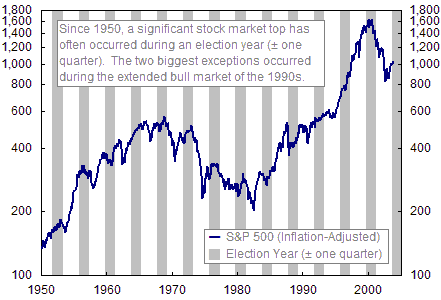Do you know that over the five-year period ending in December 2008, only 28% money managers beat the S & P 500 large cap index? Wait, it’s even worst when you look at S & P SmallCap 600 — only 14% money managers beat the index.
Why is it so hard for these money managers to outperform an index? Market is a zero-sum game. For every winner, there is a loser. And when you add, average 2%, cost of running a behemoth fund, money manager has to make more than 2% to outperform the market.
This is why you need to take charge and learn how to invest your hard-earned money. Investing in common stocks is no different from anything else you are passionate about in your life. It requires constant learning — by knowing what works when you make money and knowing what to avoid when you lose money.
I’ve lost money in the market before. But, for the past several years, I have made commitment to learn from my mistakes and to invest with discipline without allowing emotions to kick-in.
Money has always been a taboo subject for most of us. A subject we all avoid. We prefer to stay informed about our favorite team yet lack any commitment to manage our own financial matters including investments. If you start spending simply few hours a week to check your investment, you can outperform most money managers by investing intelligently.
So, with that in mind, I have few must money lessons for smart investors.
1. Protect your investment.
Have you ever given thought to protect your investment before investing in a hot stock tip from a friend? Most investors only think about gain; and, seldom think that all common stocks are risky. Warren Buffett is an amazing investor because he understands this simple golden rule of investment.
“Rule No. 1: Never Lose Money. Rule No. 2: Never Forget Rule No. 1.” — Warren Buffett
Buy a simple diary or use your Mint app to track your investments. If you write down the reason to invest, it will be easier for you to revisit and review a week later to see if your investment still makes sense. You should also have an exit strategy. It should simply state when you will sell the stock. A simple rule of thumb that has worked for me is if I can’t convince myself to buy this same stock today then it’s time to sell.
You should never allow ego to take control. the most important money lesson is to remember, stock ticker has no idea about the price you paid nor it really cares. When you are wrong, and you will, have a strategy to take a smaller loss and let that money work for you on another investment that can make money for you. If you are adamant, your stubbornness will cost you hundreds or thousands or dollars worth of money lessons. Your aim should not be to prove yourself right, rather, it should be to first protect your assets and make your asset grow.
2. Don’t fight the tape.
Most investors lose money not because they are not informed; it’s because they don’t take time to learn how to read technical charts.
It takes a man a long time to learn all the lessons of his mistakes. They say there are two sides to everything. But there is only one side to the stock market; and it is not the bull side or the bear side, but the right side. – Jesse Livermore
No matter how gifted swimmer you are, you never dive into ocean when tidal waves are against you. The same money lesson applies to your stock investment. All common stocks lose money when the general market is down. You should never fight the tape. Instead, learn to read charts so that you can get an accurate picture of how general market is acting before you plunge your hard-earned money into any promising common stock.
This is the single most important money lesson that I have learned hard way. Once I started investing by reading charts, I have outperformed the market for last several years by wide margin. I use a common rule to sell all my investments if both Dow and S & P 500 undercut 50 day moving average.
Unlike 10 years ago, cost of transaction is so small that you should never allow it to prevent you from selling your investments. Instead, consider cost of transaction as an insurance policy to protect your assets from a major market downturn.
3. Invest in a great leader.
 Have you ever found iPhone or iPad on sale? But, you still love it, right? You should apply same philosophy to your investments. I never pay a great deal of attention to P/E ratios as most cheap stocks are cheap for the reason. You will find that these are the companies run by sub-par management. A great company needs a great visionary. And you have to pay dearly for those rare talent.
Have you ever found iPhone or iPad on sale? But, you still love it, right? You should apply same philosophy to your investments. I never pay a great deal of attention to P/E ratios as most cheap stocks are cheap for the reason. You will find that these are the companies run by sub-par management. A great company needs a great visionary. And you have to pay dearly for those rare talent.
I buy stock when it goes up. If stock goes even higher, I buy more. Have you ever invested in a business that lost money? We all have. Have you invested more once you lost money in that business? You don’t want to buy more stock when your initial investment went against you either. This money lesson is so crucial for your ability to protect your money so that you can grow it when you find investment that works for you.
One of the major money lessons I’ve learned is to keep tracking every investment and to document what works so that I can keep refining my strategy. If you don’t keep detail notes of every stock investment you make, you’ll never learn from your mistakes. What you’ll learn from your own account of stocks that lost you money will be invaluable. Like any other professional players, you have to keep learning to refine your investment strategy.
Are you a long-term investor? It really is meaningless to ask this question. In fact, long-term investment is worthless if your investment is losing money. Your only goal should be to make money in the stock market without any rhetoric to influence your investment decision.
All three money lessons teach you to be a good Stewart of your money. You can beat most money managers if you commit yourself to learn and invest wisely.
I am not espousing any strategy or formula. I simply want to share money lessons I learned hard way so that you can avoid these mistakes and start investing wisely. After all, It’s your money.








MOATS : The Competitive Advantages of Buffett and Munger Businesses discusses the “competitive advantages” of 70 selected businesses purchased by Warren Buffett and Charlie Munger for Berkshire Hathaway Incorporated. This is a very useful resource for investors, managers, students of business around the world. It also looks at the sustainability of these competitive advantages in each of the 70 chapters.
The MOATS book introduction audio mp3 file: http://www.frips.com/moats.mp3
audio file of Wells Fargo, WFC chapter from MOATS book:
http://www.frips.com/wfc.mp3
audio file of the Johnson and Johnson chapter from MOATS:
http://www.frips.com/jnj.mp3
audio file of the Costco chapter in MOATS http://www.frips.com/costco.mp3
audio file of the American Express chapter: http://www.frips.com/axp.mp3
The IBM Chapter from MOATS. Why did Buffett buy into a technology services
company after so many years? http://www.frips.com/ibm.mp3
Here is a 1 min : 32 sec audio file of Warren Buffett talking about an
economic castle and its moat http://www.frips.com/wbmoat.mp3
Thanks for sharing wealth of information.
I think my nirvana moment was Bogle’s wise words: Costs matter as much as your profits.
10% returns on a $100 investment doesn’t make sense if you have to pay $15 in commissions! 😉
Costs indeed matter much in the long run as it adds up quickly.
Some great points…. I can’t say how refreshing it is to see the rule #1 so prominent. I have a motto: Protect Capital, Minimize Risk, Maximize Returns.
Two of these are defensive in nature…. and if you don’t take care of them, the last one won’t work!
Well said! Risk management ought to be important factor for an intelligent investor.
Shilpan,
So true about choosing companies led by visionaries. Make sure you evaluate the entire management team, however. I once read a column about a similar investing strategy; buy companies that make products you yourself love. The reasoning goes that chances are if the products are fantastic, they will build a following and the company will succeed.
hat is not always true. Witness SOny’s Betamax. It failed in themaketplace, although it was superior to the VHS system marketed by JVC. Sony was an established company, so Beta’s market failure did not prove fatal, but to a smaller firm, that had sunk everything into the product, the results could have been catastrophic.
The point is that ittakes grea product to succeed, but that has t be coupled wih superior marketing and competent management.
Thnks for the post,
Steve
Steve,
I agree with you. Great product or service + visionary management = Huge success.
Thanks for sharing your idea.
Can you suggest a book on learning how to read technical charts..thank you very much..
[…] 3 Must Money Lessons for Smart Investors on Street Smart Finance […]